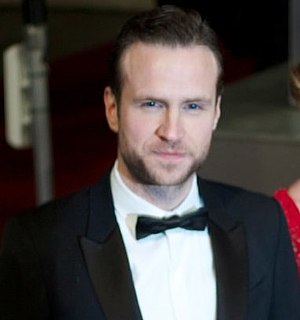A Quote by Greta Gerwig
It's so hard for people to give up their cell phones or their ideas of being connected to everything all the time in order to get an immersive experience. That's the best way to make art. It's almost like you have to treat it like you're going into a submarine, and Noah Baumbach totally agrees with that. There's not a real other life that happens outside of the movie while it's being shot, which I like.
Related Quotes
There's a real tension between it being a collaborative art process, which is almost like performance art of yourself, and, as we talk about the movie, it's kind of a mix between melodrama and cinéma vérité. This involves ideas about playing the role of yourself and the movie of your life and all these other things.
Noah Baumbach does more takes than any director I've ever worked with. He runs a very quiet set and he runs a very hard working set. He has such an intense level of dedication to what's happening that he cultivates a group of people around him who have an equal level of dedication. Nobody asks, "When is lunch?" That's just not part of our sets. It's complete immersion. He has a 'no cell phone' rule. Nobody checks their cell phone. Nobody reads on set. It's like, "If you're there, you're there. If you're not on board with that, don't work on this movie."
It really has been a blessing because you can go and look at our other movies we've done in a studio system. We didn't get to make the movie that we wanted to make. We made the movie that someone else wanted us to make. That can be a little disheartening, a lot disheartening. While there have been struggles, it doesn't matter which table you're at because you're going to have obstacles, but I kind of like being able to make the movie that you want to make.
The cell phone has transformed public places into giant phone-a-thons in which callers exist within narcissistic cocoons of private conversations. Like faxes, computer modems and other modern gadgets that have clogged out lives with phony urgency, cell phones represent the 20th Century's escalation of imaginary need. We didn't need cell phones until we had them. Clearly, cell phones cause not only a breakdown of courtesy, but the atrophy of basic skills.
You can't teach anyone. You can't tell anyone. That's the thing you have to sit down and experience in order for it to mean anything. You can't intellectualize it. It's like why movies are cool. It's a combination of pictures and design and acting and music can create an experience that is outside of the experience that you can actually have in reality, which gets to my motion picture philosophy. People are like, 'aren't you trying to make the movies as real as you can?'
A lot of people will think I changed the book: ‘so you’re the tiger instead, you’re the tiger who ate the cook.’ That’d be totally expository, like in the book, ‘you’re the tiger’ and then it stops there. That seems to have the magic touch. I bring everything together. That’s why he made up the story, the whole thing becomes internalized. That might be the magic, but all I did is not so much interpreted, but try my best to keep everybody still staying in the movie. And I was like, ‘God, it’s so hard to do.’ I make movies for a long time. It doesn't get easier.
It's just hard to look at yourself and guess how you're going to be perceived by other people sometimes. I do my best to let people know that I'm approachable, but I'm a human being just like anybody else. Sometimes people forget that. They forget that you're a person and they treat you like this celebrity thing. But I have to be patient with that, and I try to be.


































